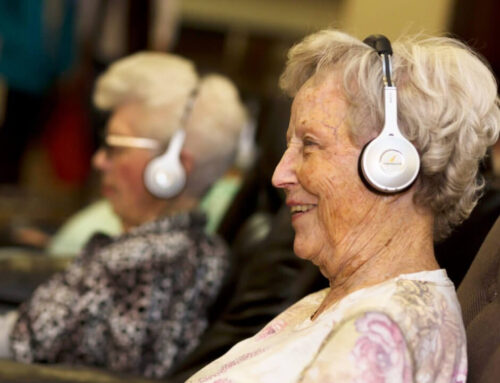When someone is suffering from dementia or Alzheimer’s disease, they can slowly begin to lose function. Individuals sometimes find it difficult to know when they should seek memory care for their loved ones. Knowing the signs to look for will help a person make the right decision for their loved one’s safety and care needs.
Signs It Is Time to Seek Care
According to health experts, around 5.8 million people in the United States have Alzheimer’s disease. Alzheimer’s is the most common type of dementia. Some people receive care from their family members throughout their lives and some are placed into nursing homes, where they can receive comprehensive care. The following offers some important signs individuals can look for, to determine if a loved one needs integrative healthcare services for their dementia.
Changes In Their Behavior
Behavioral changes are common when a person has dementia. As the disease progresses, a person’s behavior may begin to change suddenly and dramatically. Individuals who were once very independent may begin feeling fearful regarding doing things on their own, such as driving. A person may start feeling more agitated or may stop taking care of their personal hygiene because they forget.
Safety Issues
One of the primary reasons people seek medical care for a patient with dementia is because they are in danger due to their memory issues. Dementia can sometimes place a person in serious danger. For instance, they could be involved in a car accident or cause a house fire due to their memory concerns. When a person is in danger because of their disease, it is time to consider getting them integrated medical care.
Declines in Physical Health
People with dementia will often forget to take care of themselves. They may forget to eat or take their medications. When an individual notices a loved one’s health appears to be declining, they need to get involved. Having their loved one’s health assessed is important. If their dementia is getting in the way of them taking care of themselves, it may be time to seek full-time medical care.
Caregiver Problems
When a dementia patient’s caregiver becomes ill or dies, the patient needs medical care right away. People are often placed in a residential medical care setting when they no longer have a loved one to care for them at home. Dementia patients sometimes need a level of memory care that cannot be provided by a loved one at home.
Problems with Incontinence
When a dementia patient begins suffering from incontinence, they often need more intensive care than a loved one can provide for them. It is already stressful enough to take care of a dementia patient, but adding the issue of incontinence sometimes makes the situation overwhelming for a caregiver. If incontinence becomes a problem, the patient’s regular function is likely to further decline.
Don’t Wait for a Diagnosis
If you have noticed any of these symptoms in your loved ones, don’t wait for a diagnosis to begin building a routine to help them. It’s important to establish a system of support quickly. Doing so will make it easier on you and on them, and will help guarantee long-term happiness for everyone.
Palm Vista offers Assisted Living and specialized Memory Care so we can help your loved ones establish a healthy routine, manage medications, provide a safe environment with socialization to encourage cognitive function, and wonderful chef-prepared meals with all day hydration – which are the pillars of health and wellness. We have trained care staff to encourage the level of independence your loved one currently has, and continue providing a higher level of specialized memory support, should that be needed in the future.
Routine is key and this is not something many busy families are capable of providing in the home. The sooner we can begin managing daily routine care and oversight, the better the prognosis and more time together in a familiar environment which truly brings peace and reduces anxiety if further memory impairment ensues.
Questions to Consider Regarding Placing a Loved One in Managed Care
Many people find it helpful to place their loved one in a community that focuses on providing integrated care for their needs. When considering whether to place a person in a memory care community, there are some questions that should be asked. Asking these questions will assist a person in making the right decisions for their loved ones.
- Is it safe for the individual to continue to live alone?
- Will the person’s behavioral changes put others in harm?
- How does the individual feel about their treatment needs?
- What does the patient’s doctor recommend?
- What resources are available to allow the person to stay at home and receive care?
Considering these questions is essential before a person takes the initiative to seek outside care for their loved one. Once a person has weighed all the options, it is important to choose a community that will offer plenty of mental and social stimulation events for the patient. The right community will bring welcome help to dementia patients.
What to Consider When Choosing a Community
There are multiple options available for those who have a loved one who needs dementia care. Individuals need to know what each type of program offers. Carrying out research is vital for helping a person make this important decision for their loved one.
Assisted living communities are best for those with mild to moderate dementia symptoms. They allow a person to live as independently as possible, while still providing the necessary care they need. In the beginning stages of Alzheimer’s this type of community would be ideal.
There are also dedicated memory care communities that are specifically for dementia patients. This specialized form of assisted living allows individuals to continue to live life as independently as possible while being able to move about safely and securely. This is one of the best community types for those with dementia.
If a person is suffering from serious mental declines, a skilled nursing community would be best. This community offers a more intensive level of care that focuses on meeting the medical needs of the patient. Some people need more intensive treatment.
No matter which community a person chooses for their loved one, research is key. Learning as much as possible about the community will help individuals to make the right choice. When great care is taken in learning about a community, individuals can rest assured their loved one will receive the care they require.






